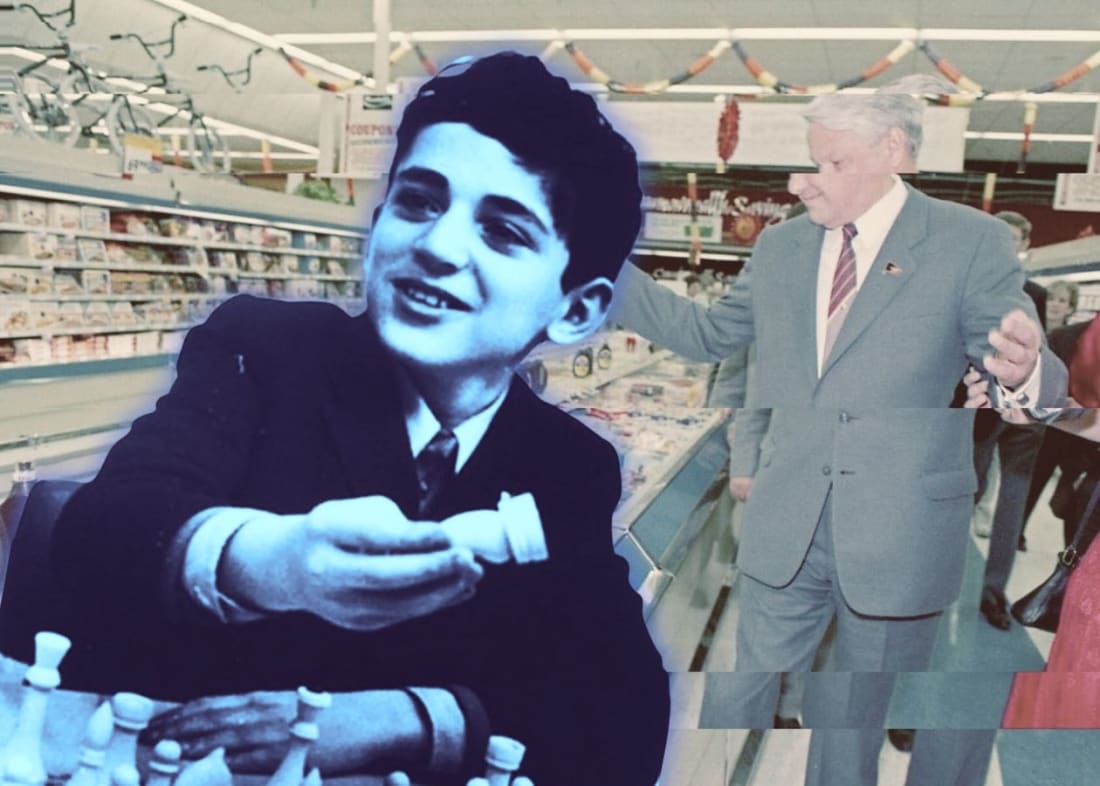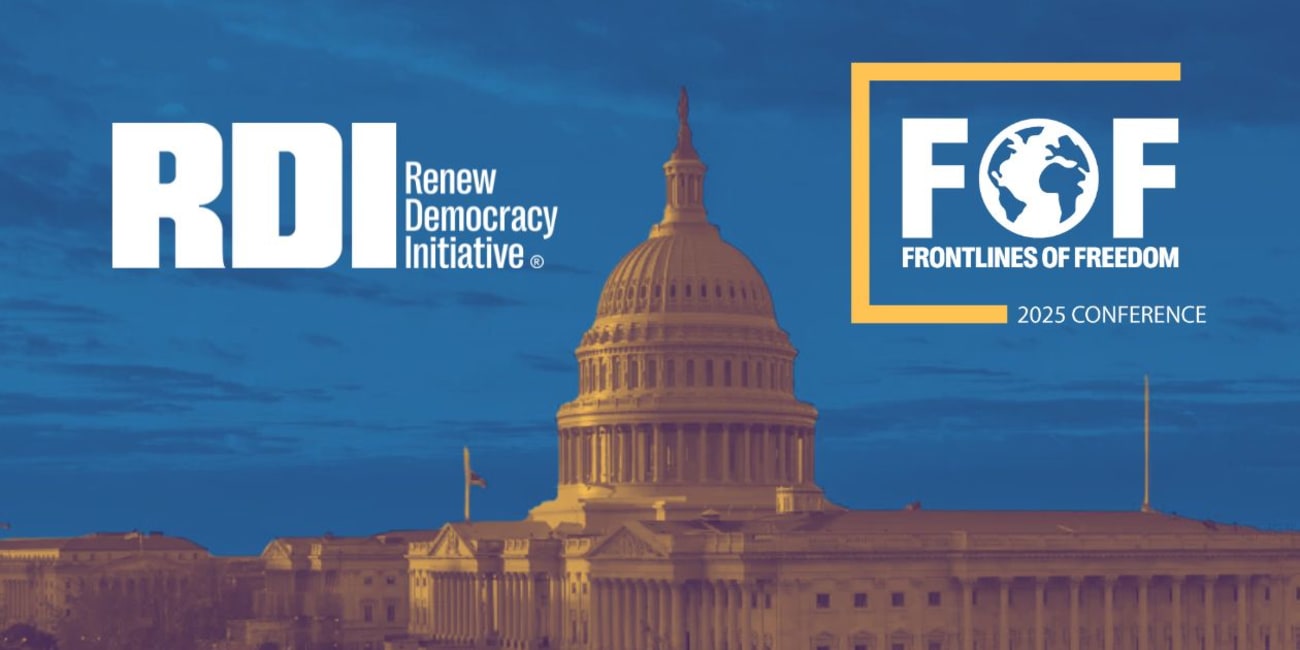|
 |
Remembering My “American Supermarket Moment” This Thanksgiving
Despite growing up in the USSR, I was exposed to the fruits of a free society from a young age.
There is a lot that I love about America. Thanksgiving is one of the things I love the most.
More than any other date on the calendar, Thanksgiving reminds us what we supporters of liberty are really fighting for.
“More than the Fourth of July?” You might ask. “More than the date on which we commemorate American democracy, freedom, and independence?”
Yes, more than the Fourth of July.
Democracy, freedom—politics, too. These are not ends in and of themselves. They are a vehicle for delivering human happiness and flourishing. That goal is what we’re fighting for.
The notion of a free society is abstract. Thanksgiving celebrates abundance, and abundance is tangible. You can taste it. Smell it. Hear it. The turkey and mashed potatoes on your plate, the chatter with loved ones, whom you’re free to visit—these are the fruits of a free society.
President Abraham Lincoln formally consecrated Thanksgiving as a national holiday in the middle of the Civil War. His proclamation is full of vivid imagery of America’s bounty. Lincoln opens by recalling that…
The year that is drawing towards its close, has been filled with the blessings of fruitful fields and healthful skies.
He continues:
Needful diversions of wealth and of strength from the fields of peaceful industry to the national defence, have not arrested the plough, the shuttle or the ship; the axe has enlarged the borders of our settlements, and the mines, as well of iron and coal as of the precious metals, have yielded even more abundantly than heretofore.
Speaking of abundance, you may have heard the story of Boris Yeltsin’s visit to an American supermarket.
It was September 1989. Yeltsin had been installed as a member of the Supreme Soviet of the USSR just a few months earlier. He took a tour of Johnson Space Center. I’m sure he was impressed, but the Soviet Union had rockets and even an imitation space shuttle too.
But the Soviet Union did not have abundance like America did.
On the way back from Johnson Space Center, Yeltsin asked to visit a supermarket. The store was given only minutes notice that a senior Soviet dignitary would be dropping in.
Yeltsin wandered the aisles, amazed at the variety and volume of products, colorful popsicles and frozen treats; plentiful produce; all painting a stark contrast to dreary communist scarcity. Yeltsin’s associates and biographers describe the transformative impact of the grocery pit stop. It further convinced the future Russian president of the brokenness of the Soviet system.
The store Yeltsin visited was a medium-sized outpost of Randalls—a Texas grocery chain. In America, there are and were far more palatial supermarkets. One wonders how Yeltsin might have reacted to the vastness of a Costco or the opulence of an Erewhon.
But in September 1989, an unremarkable local supermarket was sufficient to capture Yeltsin’s imagination. Eight weeks after Yeltsin’s visit, that Randalls location was undoubtedly crowded with Americans stocking their kitchens for Thanksgiving.
Years before Yeltsin’s trip to Texas, I had my own “American supermarket moment”—actually several—when I experienced, viscerally, the difference between free and unfree.
As a top chess player, I enjoyed privileges my neighbors in the Soviet Union could not even dream of.
I got to travel to Western democracies to compete. Assuming they even had the means to travel, a Soviet citizen could count themselves as extremely fortunate if they got approval for a holiday in Bulgaria. I was playing chess in places like New York, London, Paris, and Amsterdam.
Of course, that freedom was conditional: Before I turned 20, the KGB would not allow my mother to travel abroad with me to competitions, essentially holding her in the USSR as human collateral to discourage defection (remember what I said about the ability to freely visit loved ones?).
The only chess title I never won was the under-16 championship. I tried, first in 1976, and then again the following year. The competition took place in northern France. My mother, always an essential, supportive presence at my matches back home, was replaced by a state-appointed coach. I was a 13 year-old kid from Baku, on the fringes of the Soviet empire, with only a stranger as my company in a strange land. It was a deeply uncomfortable experience, and I just couldn’t manage the win.
Still, the Soviet authorities could not hold a blindfold over my eyes. I, too, was exposed to the fruits of a free society, and from a much younger age than Boris Yeltsin.
In France, I met a family who would cross the border into Belgium each morning to buy milk (and they were confident there would be milk readily available to buy!). That shattered my sense of travel as a deeply proscribed activity. No commissar had to sign off on that family’s daily excursion. Free societies enable freedom of movement.
Four years later, in 1980, I was in Italy, on my way back from my first chess olympiad in Malta. During a long layover, I caught The Empire Strikes Back. It was my first experience with American cinema that hadn’t filtered a censor and a dub. What a drag to leave the theater knowing I was returning to a country where the Darth Vaders ran the show. Free societies foster creative expression; unfree ones force it underground or wipe it away altogether.
In 1991, in the final days of the Soviet Union, I spoke at a rally—as it happens, in support of Boris Yeltsin’s presidential campaign (we had higher hopes for him back then). I stood on Manezh Square, just beyond the Kremlin walls. I was confident; I’d been in the public eye for some time. But, standing in front of hundreds of thousands of people, I briefly found myself at a loss for words.
When I collected myself, I recounted how I’d recently been to America. There, I only saw long lines in one place: Disneyland. I told the crowd that we ought to have a country where people queued for amusement park rides and not for food.
Free societies deliver abundance.
These days, there is a lot of doom and gloom about the United States across the political spectrum. I am not talking about America’s current democratic and institutional crisis, which is indeed deathly serious. I am referring to the short-sighted ideological decay that is increasingly popular with radicals of all stripes; on the right, the perception of America as sinful, deviant, and overly tolerant. On the left, it is the view that America is criminal, colonial, illegitimate.
The exhortation to make America great again implies that America is no longer great. Far-left self-flagallation tells us it never was.
Americans would do well to discard these self-destructive narratives. It may be hard to describe what lofty concepts like democracy and freedom really mean, but you can see the rewards of those concepts all around you if you’re willing to open your eyes.
If Abraham Lincoln could find time for gratitude in the middle of a deadly Civil War, Americans today can too. If Yeltsin could be so impressed by a grocery store many Americans might consider average, then you have something to be thankful for. I’ll dispense with the caveat that America isn’t perfect (what country is?). If you are thankful for something, then you have something you can fight for.
Happy Thanksgiving.



